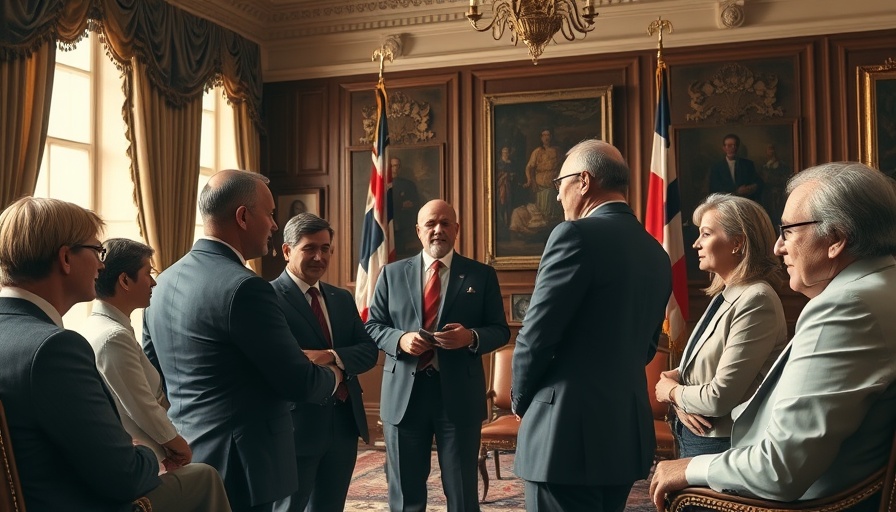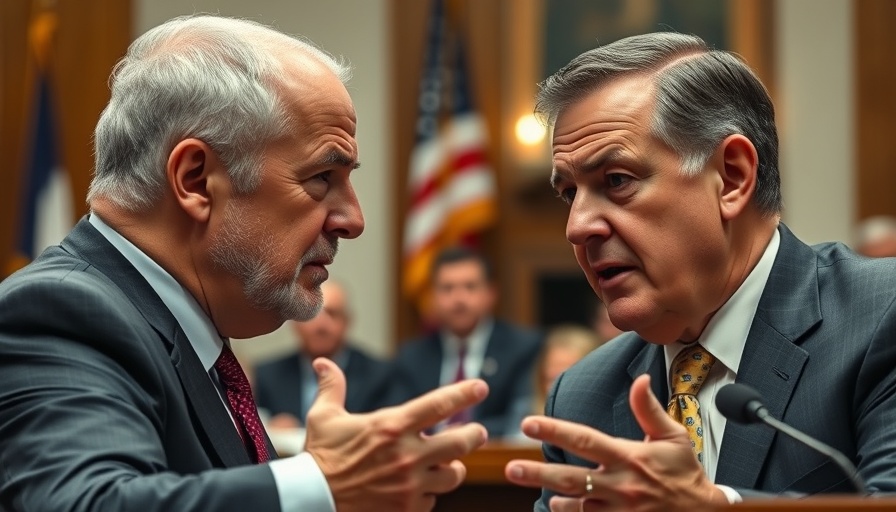
Trump's Oversight Amidst Executive Ordering
In a striking episode that raises questions about leadership acumen, President Donald Trump recently signed multiple executive orders, yet demonstrated a concerning unfamiliarity with their contents. The moment, which Critics dubbed "telling," underscores ongoing discussions about Trump’s grasp of significant policy initiatives. Video footage reveals Trump querying attendees about the specifics of what he had just signed, prompting reactions that ranged from supportive explanations to snarky remarks about his cognitive state.
Reactions from the Political Sphere
Trump’s moment of uncertainty was not lost on political analysts and critics alike. Fred Wellman, a West Point graduate, expressed alarm at how out of touch the President appeared. His admonition that "He is not in charge" echoes sentiments in civil rights and immigration discussions, where informed leadership is key. Political commentators, such as MSNBC’s Michael A. Cohen, suggested the spotlight on Trump's quality of understanding what he signs could indicate greater cognitive challenges that are becoming hard to ignore.
The Role of Executive Orders in Governance
Executive orders are designed to enable swift administrative actions that often reflect a president's priorities. However, as seen in Trump's case, the execution of these orders requires not just signing but a profound understanding of implications and context. The lack of engagement in comprehending details raises questions about the validity and thoroughness of governance processes. Legal experts stress that executive orders impact a wide range of policy areas, including immigration and civil rights, making this knowledge crucial for effective leadership.
The Importance of Transparency and Accountability
For civil rights and immigration attorneys, the implications of executive orders aren’t merely academic; they have real repercussions in their daily advocacy work. Orders signed without due diligence or transparency threaten to undermine justice and civil rights. This unawareness highlights a critical need for accountability among leaders who wield such power, emphasizing the importance of thorough discussion, public engagement, and clarity in policy-making.
Future Predictions on Policy Changes
Looking ahead, the uncertainty surrounding leadership effectiveness could influence future policy directions. Progressive movements in immigration reform and civil rights advocacy are poised to capitalize on any vacuums created by ill-informed executive actions. As the legal landscape evolves, these advocates will likely press harder for transparency and diligence in order issuance, seeking a shift that prioritizes informed policymaking as a standard.
Empowering Civil Rights Advocates
Engagement among civil rights and immigration attorneys in the aftermath of these executive orders is essential. By fostering discussion and promoting legislative scrutiny, lawyers can shape better-informed policies that truly reflect the needs of diverse communities. With such pivotal moments unfolding, it’s vital to stay updated and actively participate in advocating for justice.
If you’re navigating the complexities of civil rights or immigration law, consider joining networks that advocate for informed policy. Your voice and knowledge can contribute to a smoother, more impactful approach to legislative change.
 Add Row
Add Row  Add
Add 

 Add Row
Add Row  Add Element
Add Element 




Write A Comment